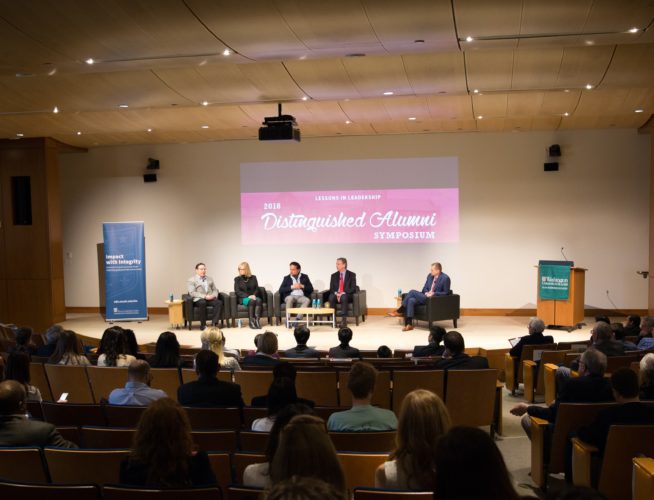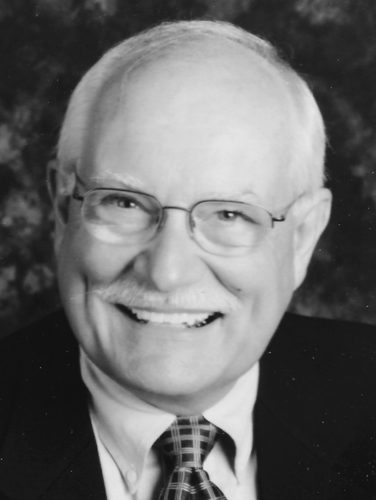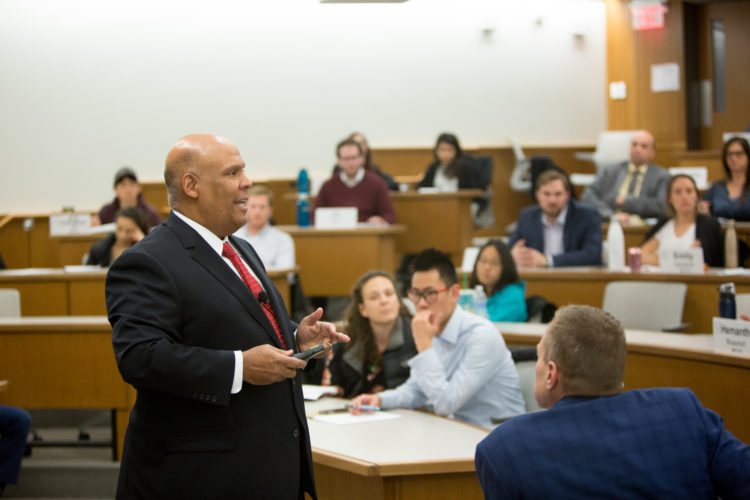Sarah Kaplan, BFA 2018, wrote this post on behalf of the Bauer Leadership Center.
Through a panel discussion cohosted by the Bauer Leadership Center and the Century Club Business Series, the 2018 Distinguished Alumni Award honorees shared how value systems have shaped their career paths.
- Zack Boyers, MBA 01’, chairman and CEO, U.S. Bancorp Community Development Corp., St. Louis.
- Shirley Cunningham, MBA ’08, executive vice president, AG Business and Enterprise Strategy, CHS Inc., Inver Grove Heights, Minnesota.
- Munir Mashooqullah, MBA ’98, founder and custodian, Synergies Worldwide, Thailand.
- Richard Ritholz, BSBA ’84, partner, senior portfolio manager and head of global commodities trading, Elliott Management Corporation, New York City.
A defining theme throughout the discussion was the significance of having a global perspective while relying on a focused value system.
Global Thinking
Richard Ritholz described not understanding globalization as going into a fight with one arm tied behind your back. In an increasingly “fast-changing and globalized world,” an appreciation for how other people think is incredibly important.
Having spent time abroad in England, Italy, Norway, and Holland working for Mobil Oil, Ritholz had to assimilate across many cultures.
“It really opened up my mind,” he said. “Without the experience of internationalization, I just don’t think I would have thought about things with as open a mind as I was able to, and I am not so sure I would have been as successful.”
Shirley Cunningham likewise shared how in her experience working around the world, a global perspective makes you think more broadly. “It makes you think in a more rounded way if you think about the globe as the opportunity versus just a narrow strip.”
With global opportunity also comes global responsibility. Munir Mashooqullah pointedly stated that all of us now have a global footprint.
“You cannot be a leader or a manager or have skills without understanding how things work around the world,” he said. Mashooqulla shared a tip he picked up from the president/CEO of Bain: CEOs have to be the leader of an ecosystem, not just a singular asset. This applies to not only global corporations, but also national organizations.
As Zach Boyers shared that working in a primarily US-based company, technology and global change still affect national organizations. In handling these global shifts and changes, it is important to have a dedicated core set of values to act upon.
Focused Values
In addressing a global business world, all four alums agreed on the importance of not just having core values, but focusing on implementing them within one’s own organization. Boyers got to the heart of the matter: “The question really becomes, what do values mean in practice and in an operating model in your business?”
To implement a core value of teamwork into his own operating model, Ritholz starts by understanding the impact of teamwork, then “I work backward and try to figure out what we need in order to engender that type of teamwork, spirit, and camaraderie.”
Mashooqullah shared another strategy implementing a values-based culture: Values must start at the top.
“We put on our website that reputation is what other people think of you, and that character is what you are,” he said. “Culture is important because without that, you cannot pre-populate an organization with what you think.”
Without a cultivated culture, it is difficult to act on specified values. Cunningham also emphasized a values-based culture. She shared an experience working in a blame-oriented culture.
From relying on her core values of integrity and problem solving, she was able to re-align with a business environment, which also supported that belief system. When it comes to values in a global world, a resounding reminder from these alums is that you cannot just talk to the talk, but you must walk the walk.









